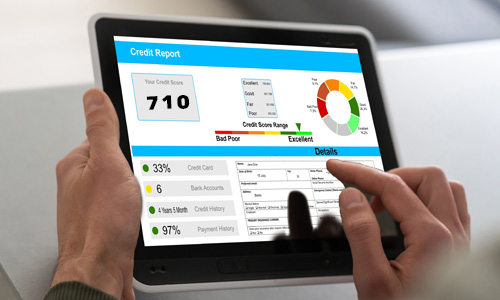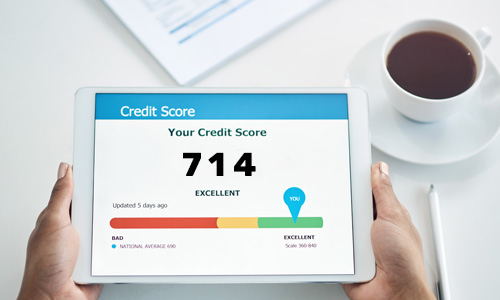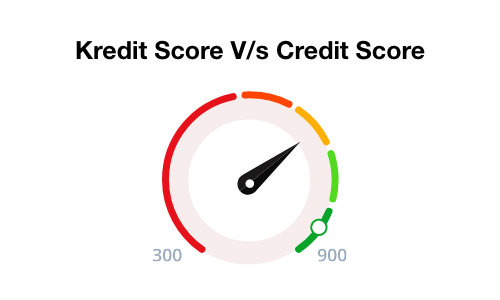Do Debit Cards Help Your Credit Score?
Debit cards provide a convenient and straightforward means of accessing our hard-earned money. However, in the world of credit and credit scores, they have often played second fiddle to their flashier counterpart — the credit card.
The prevailing wisdom has been that while credit cards can significantly impact your credit score, debit cards remain on the financial sidelines, with no bearing on your creditworthiness.
In this article, we will dive deep into the intriguing question — Do Debit Cards Help Your credit Score? We will explore the intricate relationship between debit card usage and the elusive three-digit numbers that wield considerable power over our financial lives.
Difference Between the Functioning of Credit Card and Debit Card
Credit cards permit you to borrow funds, usually up to a specific limit. You are then obligated to repay this borrowed amount along with an additional interest fee (if applicable). Whenever you make a transaction using a credit card, your payment history and the extent to which you are utilising your credit limit are conveyed to credit reporting agencies, which potentially influences your credit score.
Debit cards, on the other hand, offer a convenient and secure means of accessing the money available in your bank account. They function differently from credit cards by allowing you to spend only the funds present in your account. When you use a debit card, the corresponding amount is instantaneously deducted from your bank account, and you don't accumulate any debt or interest charges.
Notably, debit card transactions are not reported to credit agencies and they don't play a role in determining your credit score. As a result, using a debit card won't lead to a change in your credit score.
Perks of Using a Debit Card
Discussed below are the general benefits of debit cards -
- Budgeting - A debit card enables you to track your expenses and stay within a budget while ensuring that you steer clear of debt.
- Reduces the Potential of Fraud - When you use a debit card, only the amount present in your bank account is instantly deducted. This feature, combined with the security measures of the top debit card providers, easily minimises the probability of fraud.
- Zero Interest Charges - Debit cards don’t involve any accumulation of interest charges, which ultimately results in cost savings over time. This proves particularly advantageous when aiming to steer clear of incurring high-interest credit card debt. Furthermore, the usage of a debit card does not carry any associated late payment fees, distinguishing it from credit cards.
- Convenience - Debit cards epitomise a highly convenient mode of payment for goods and services. They grant swift and effortless access to your funds, eliminating the need to carry physical currency.
- Rewards - Numerous debit cards extend the benefit of rewards and cashback, offering a commendable means of economising. These accrued reward points can be redeemed for online purchases or leveraged for discounts on subsequent transactions.
- Accessibility - Debit cards boast near-universal acceptance, rendering them a superior choice for frequent travellers. Their versatility spans across various establishments, encompassing brick-and-mortar stores, dining establishments, online platforms, automated teller machines (ATMs), and so on.
Can Debit Cards Help in Boosting Your Credit Score?
As we saw earlier, your credit score does not get affected when you use your debit card to make a payment. This is so because the money is directly debited from your bank account to cover the expenses.
When you use a credit card, however, you borrow money from a credit line. The credit card provider covers the cost upfront and you repay them eventually.
When you make payments using a credit card, the provider reports the activity to the credit bureau. The credit bureau then compiles the information that they receive to generate your credit report, which is eventually used for determining your credit report.
In the case of a debit card, since the amount is directly debited from your bank account, the activity is not reported to the bureau. Thus, debit cards don’t help in building your credit score.
How to Build Your Credit Score?
The most suitable options for establishing or reconstructing your credit score will depend on your credit history. Irrespective of the approach chosen, the process of building your credit score depends on ensuring that your debt payments are reported accurately to credit bureaus.
Some of the popular strategies for improving credit scores include the following -
Becoming an Authorised User -
You have the option of having a family member or friend include you as an authorised user on one of their credit cards. Consequently, a card in your name will be issued.
If the credit card issuer reports authorised user accounts to credit bureaus, this will be reflected in your credit history, contributing positively to your credit-building efforts.
Notably, the responsibility for making payments rests with the primary account holder. However, you can directly reimburse them for any purchases made. It's crucial to ensure that the primary account holder maintains a responsible credit card usage history before requesting authorisation on their account. A credit history marked by consistently low credit utilisation and absence of missed payments is highly effective in boosting your credit score.
Opening a Credit Card -
Qualifying for a traditional, unsecured credit card can be challenging if you have a limited credit history. In such cases, a secured credit card may be a viable alternative.
A secured credit card requires a refundable deposit that often determines your credit limit. You can then use this card like any other credit card.
Responsible usage of the card, including making on-time payments and maintaining a low credit utilisation ratio, can help in building your credit, provided the issuer reports your payment history to credit bureaus.
Some creditors may convert a secured credit card into an unsecured one after a period of responsible usage. Alternatively, by that point, your credit might be strong enough to help you qualify for a traditional credit card.
Considering a Credit-Builder Loan -
In contrast to a standard loan, where you get the money upfront and then pay it back gradually, a credit-builder loan works differently.
With a credit-builder loan, you'll be making regular fixed monthly payments over a predetermined period, typically ranging from six to 24 months. These payments will be reported to credit reporting agencies.
Making consistent, punctual payments on a credit-builder loan can have a substantial positive impact on your credit history. After you finish the loan term, you'll get back the money you put in, which might also include the interest you paid. These loans are especially advantageous for people who have a limited credit history or less-than-perfect credit.
Gaining Credit for Rent Payments -
Payment history constitutes 35% of your credit score, making it a crucial factor in the determination of your credit score in the UAE.
Adding your rental payment data to your credit history is a straightforward method of building credit — as long as you consistently make on-time rent payments. While rent payments may not be automatically reported to credit bureaus, some service providers can have them included in your credit report, leading to a potential increase in your credit score.
Policybazaar UAE – Helping you navigate the wilderness of the insurance world!
| Credit Score for different types of Loan | |||
|---|---|---|---|
| Credit Score for Personal Loan | Credit Score for House Loan | Credit Score for Car Loan | Credit Score for Student Loan |

More From Credit Score
- Recent Articles
- Popular Articles












